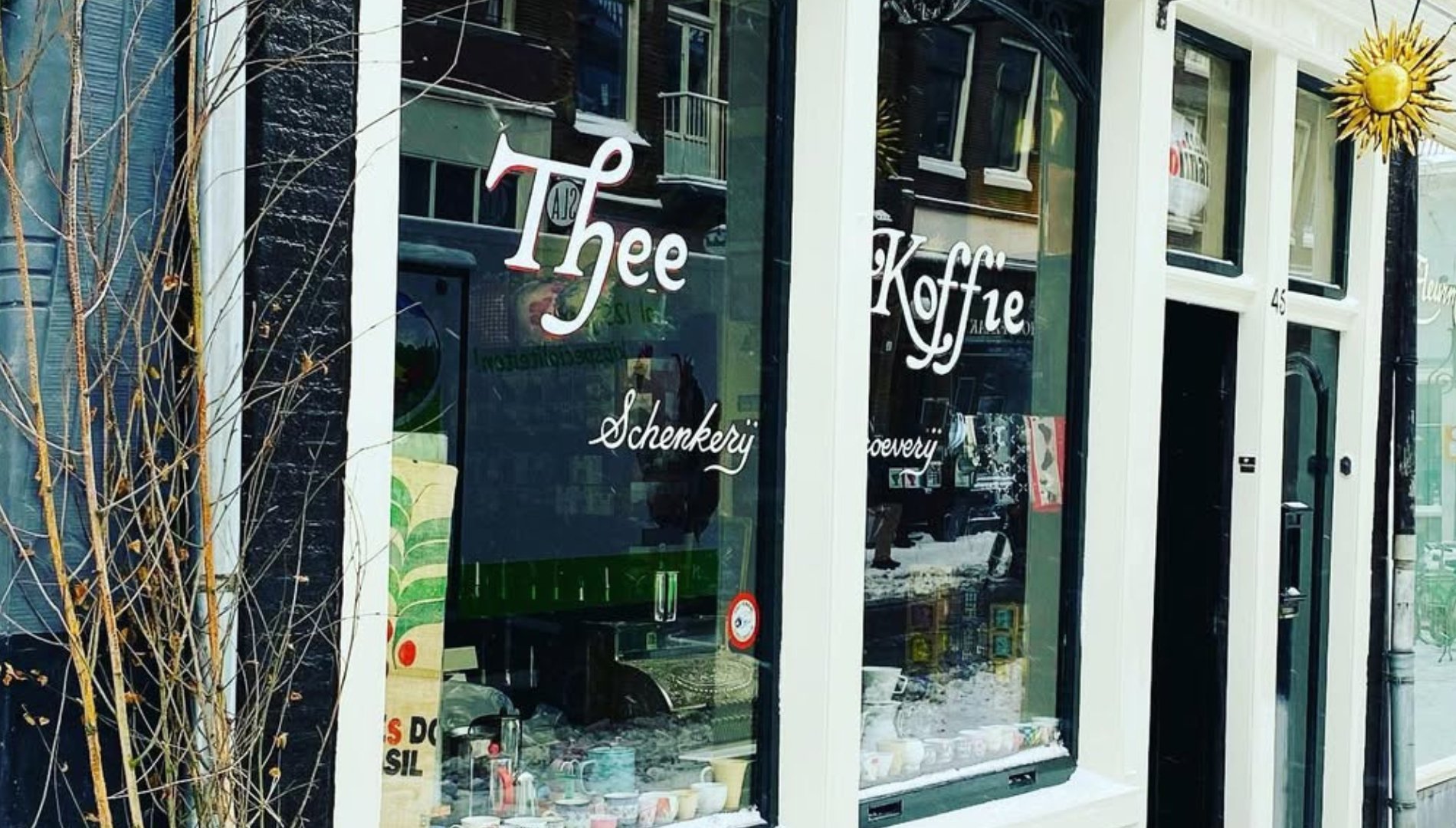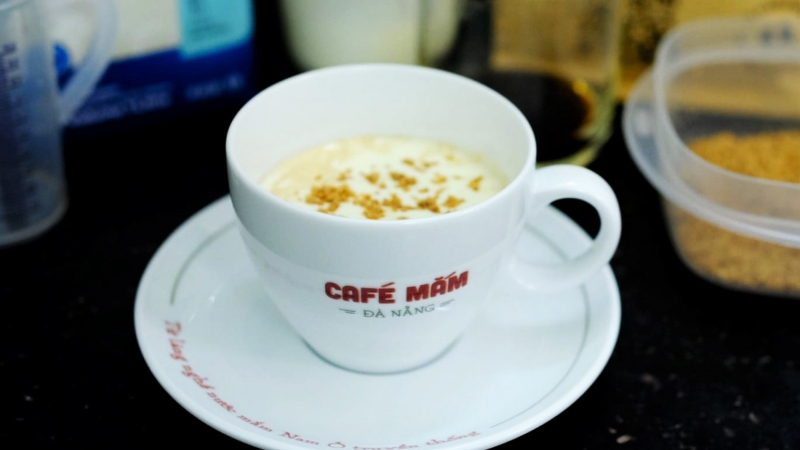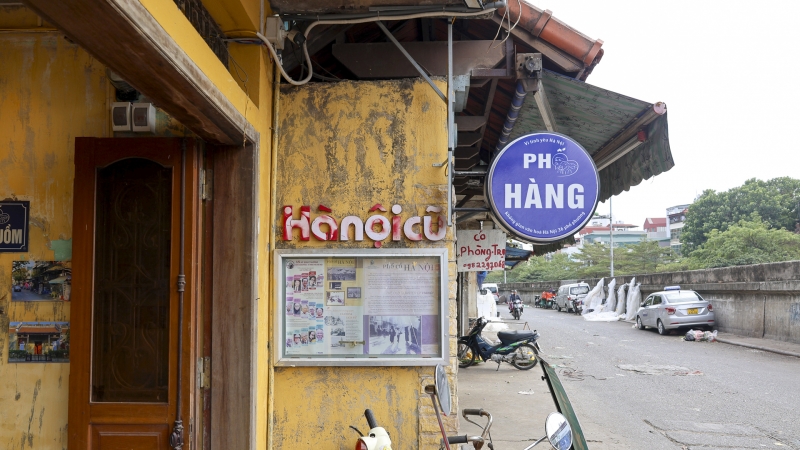In the heart of Amsterdam, where picturesque canals meander beneath historic buildings, CNN notes that a harsh combination of skyrocketing rents, persistently sluggish revenue, and, most notably, a profound shift in tourist tastes – who are increasingly drawn to establishments inspired by captivating TikTok videos – is pushing many of the city's timeless establishments to the brink of collapse.
Nestled quietly in a sturdy building that has witnessed the changes of the 17th century, the tea and coffee shop known as 't Zonnetje, meaning "little sun" in Dutch, is preparing to close after many years of operation. Marie-Louise Velder, who has dedicated herself to keeping the warm flame of 't Zonnetje alive, plans to cease operations at the end of May, after tireless efforts to keep this heritage alive.
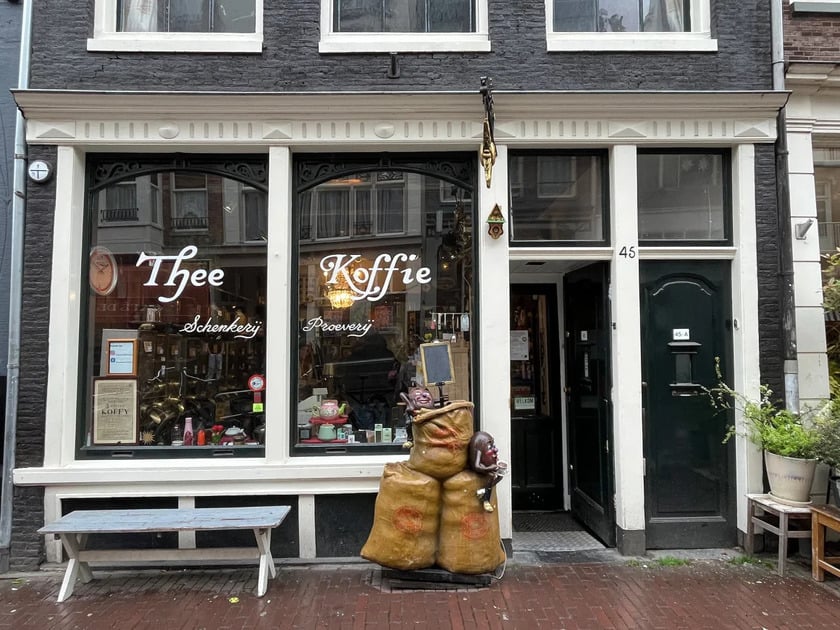
Centuries-old establishments like 't Zonnetje are struggling to survive under pressure from rising rents and the emergence of trendy eateries fueled by TikTok.
CNN sadly observes that shops that have become an integral part of Amsterdam's history, such as 't Zonnetje, are increasingly struggling to survive amidst rising economic pressures. Meanwhile, a world of modern, trendy cafes, heavily promoted by TikTok, along with the expansion of mass-market pastry chains, continues to spring up like mushrooms after the rain, ready to cater to what is perhaps the temporary needs of tourists.
Kate Carlisle, a resident who has lived in Amsterdam for eight years and a regular customer of 't Zonnetje, expressed her deep sadness at the prospect of the shop closing. She tearfully shared that this is not just the loss of a business location, but a tremendous loss to the city's cultural heritage. "This is a real heritage – from the architecture of the building, the history behind it, to the street where it's located," Carlisle emphasized. "Everyone needs to work together, do everything they can to save this place. Otherwise, Amsterdam will gradually become a series of soulless shopping centers, losing its inherent identity."
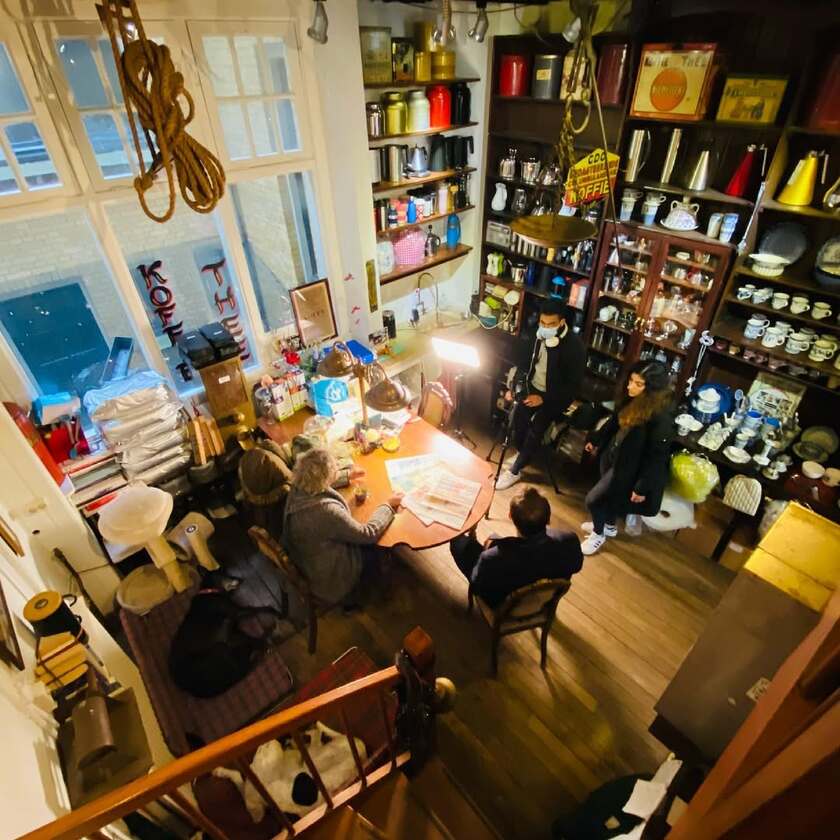
The closure of this 400-year-old café has left many visitors feeling regretful.
The staff at 't Zonnetje unanimously agree that the café is more than just a business; it's an integral part of Amsterdam's spirit, a welcoming meeting place for both locals and tourists, preserving stories and memories of centuries. "Of course, Amsterdam has no shortage of other tea and coffee shops," one employee shared, "but most are generic. 't Zonnetje is truly special; it has a soul of its own."
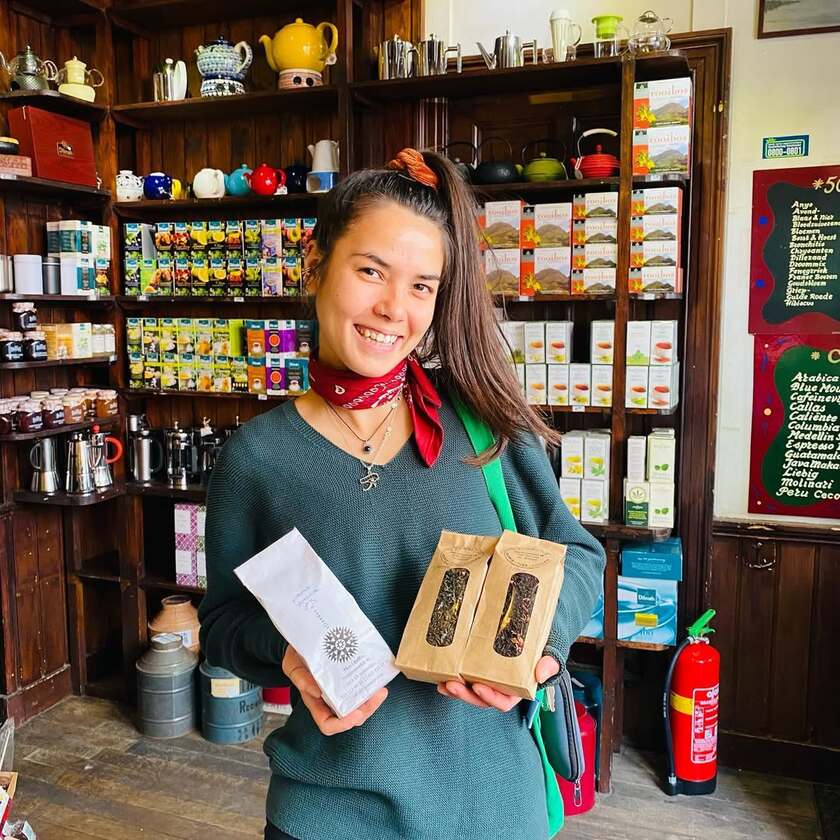
The shop is considered a childhood memory for many guests.
Velder's journey with 't Zonnetje began in 1999, spontaneously and based on absolute trust – "just a handshake" instead of a contract, she recalls. The early years were challenging, but with unwavering determination, she continuously learned and delved deep into the industry and customer needs. She recounts the difficult beginnings, when the business started with "a bucket of charcoal, a bucket of water, and some simple herbs." Then, gradually, tea appeared, followed by coffee, laying the foundation for 't Zonnetje as it is today.
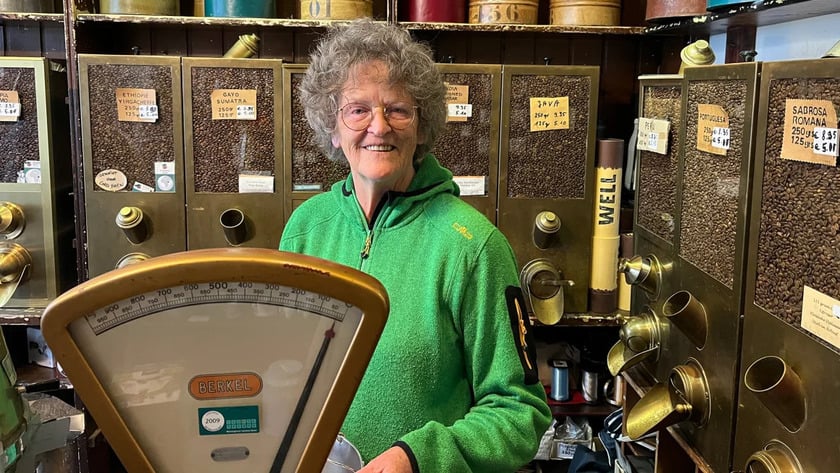
"'t Zonnetje is truly special; it has a soul of its own."
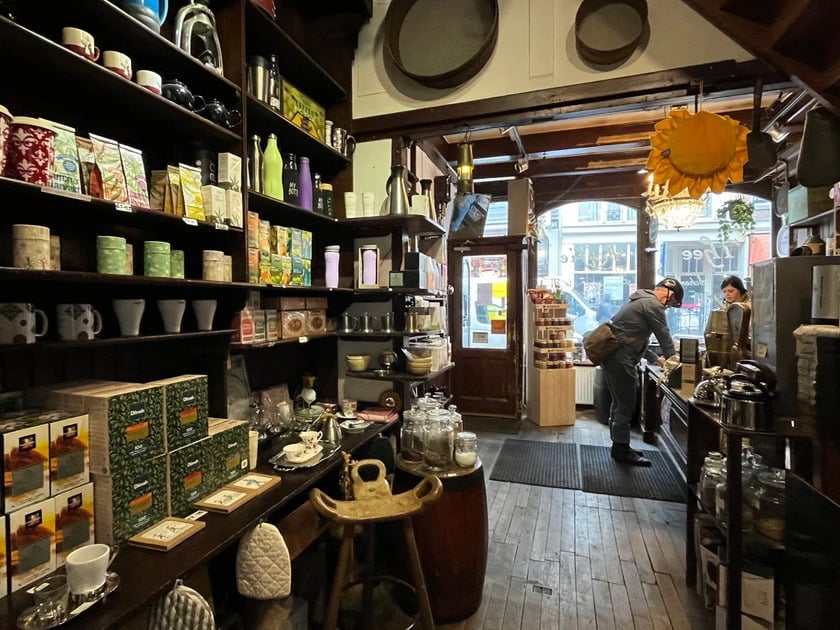
With dedication and passion, Ms. Velder gradually built the cafe's reputation, renowned for its carefully selected, high-quality products sourced from around the world. At its peak, 't Zonnetje boasted an extensive tea collection of up to 350 varieties, many of which she brewed using unique "secret recipes." However, with closure imminent, she has limited the import of new stock. Currently, the cafe still serves around 15 premium coffees.
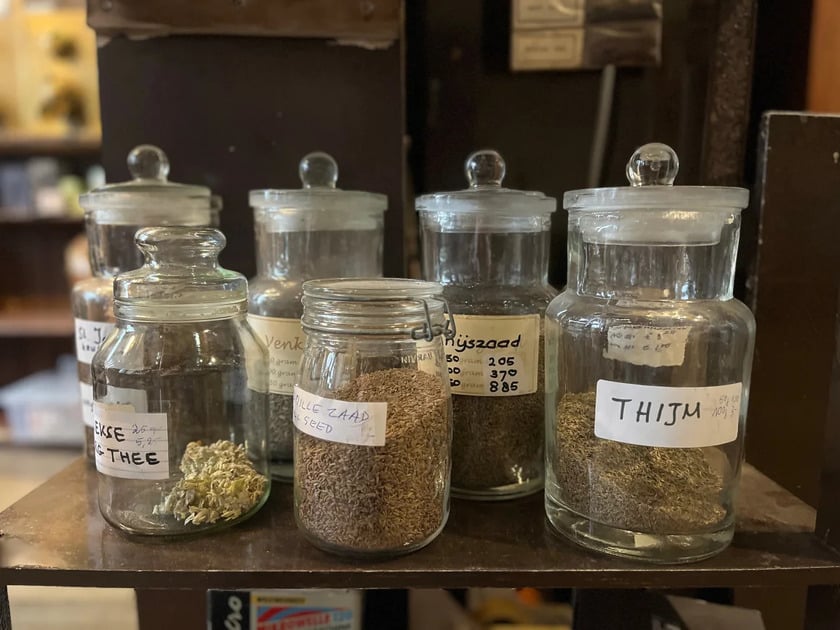
In the past, the shop used to offer as many as 350 types of tea – some brewed by her using "secret recipes".
Amsterdam, a city celebrating its 750th anniversary, faces the daunting challenge of preserving its cultural heritage amidst rapid tourism growth, which has led to many undesirable consequences. Sadly, many unhealthy entertainment options have become tourist attractions, causing visitors to turn away from sites with profound historical and cultural value. A prime example is the opening of Amsterdam's first cannabis shop in March 2023 by former American boxer Mike Tyson, a sign of a shift in the city's tourism strategy.
Over the past decade, Amsterdam's authorities have strived to shift its tourism focus, attracting visitors to the city to appreciate culture, explore museums, and experience authentic historical values, rather than seeking fleeting and somewhat negative pleasures. However, the sad story of 't Zonnetje once again serves as a wake-up call about the significant challenges in preserving cultural identity in the face of overwhelming new trends and increasing economic pressure. The fate of this "little sun" hangs in the balance, and its passing will leave a void that will be difficult to fill in Amsterdam's vibrant tapestry.

 VI
VI EN
EN



